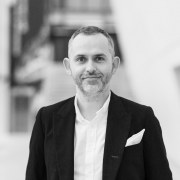17.06.2023 | 09:00 - 10:15
This session brings together two world-renowned organisations who have reached major inflection points that they are using as catalysts for change, and to anchor their grand plans for the future. Each needs to address how to adapt for contemporary audiences and engage with the macro global problems of the 21st century, while remaining true to its origins and keeping its position as a trusted voice in society.
In 2027, Science Centre Singapore will be 50 years old. Part of the 'first wave' of science centres worldwide, it has become an icon in the Asia-Pacific region. But its buildings are at the end of their life and the Centre is relocating to a new site nearby.
Meanwhile in London, the Natural History Museum is looking ahead to its 150th anniversary in 2031. This famed research institution and iconic visitor attraction is reshaping its activities at a time of global climate emergency around a mission to create 'advocates for the planet'.
Despite differences of geography and intellectual territory, both organisations have very similar challenges and are facing them as peers and friends.
Outcomes: what will participants get from this session? Skills, knowledge, experience etc.
Participants will learn of the multiple challenges faced by major science education institutions when planning for the future - in areas such as engagement, audience development, operations, funding, and more. Panellists will explore the issues in planning for the long term, and how to prevent 'designing out' flexibility for generations yet to come.



